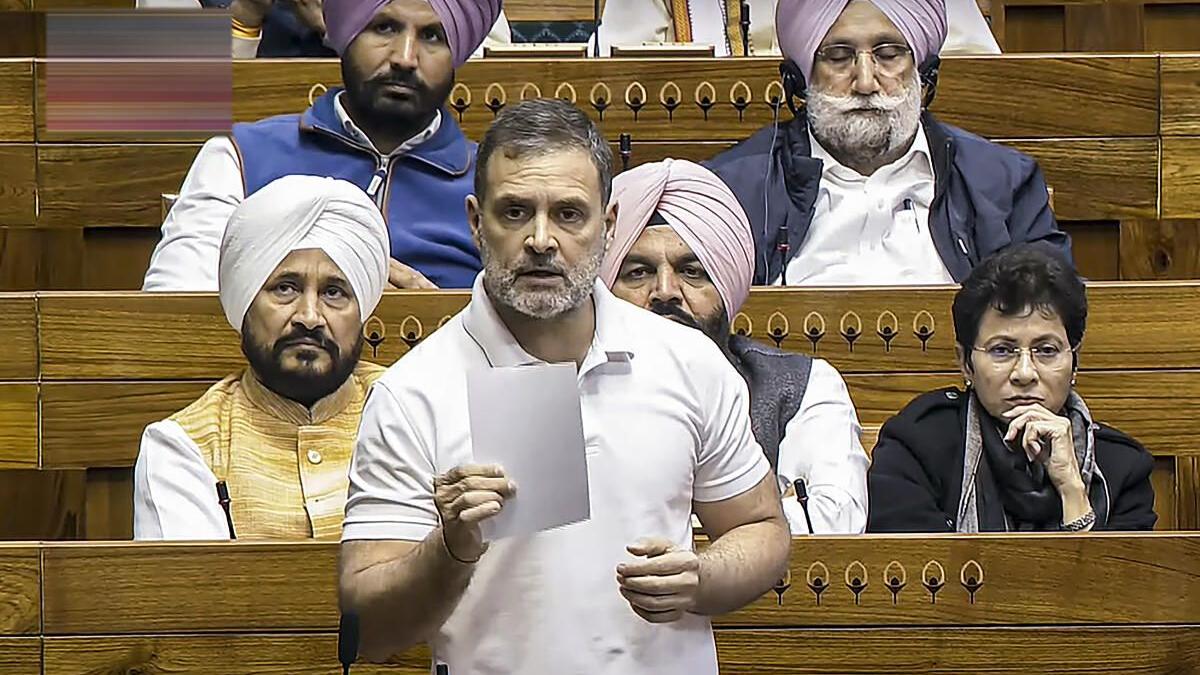 |
|
The Lok Sabha witnessed a heated debate on the 75th anniversary of the adoption of the Indian Constitution, with Leader of the Opposition Rahul Gandhi launching a scathing attack on the Bharatiya Janata Party (BJP). Gandhi strategically used the words of V.D. Savarkar, a prominent figure revered by the BJP and the Rashtriya Swayamsevak Sangh (RSS), to highlight what he perceived as a fundamental hypocrisy within the ruling party's rhetoric. Gandhi quoted Savarkar's alleged statement that the Indian Constitution lacked Indian essence, preferring instead the Manusmriti, a Hindu religious text. This direct confrontation with a cherished figure within the BJP's ideological framework served as a potent tool to challenge the party's narrative of constitutional protection and patriotism. Gandhi's tactic effectively framed the debate not merely as a political disagreement, but as a clash of fundamental ideologies, questioning the very core of the BJP's claim to defend the Indian Constitution.
The strategic deployment of Savarkar's purported statements was a calculated move to destabilize the BJP's position. By directly linking the BJP's actions and pronouncements with what he characterized as Savarkar's rejection of the Constitution, Gandhi aimed to create a cognitive dissonance within the audience. The implication was clear: the BJP's championing of the Constitution stands in stark contrast to the views of one of their most significant ideological pillars. This tactic highlights the complexities of Indian politics, where historical figures and interpretations of their legacy become pivotal elements in contemporary political battles. The debate extended beyond a simple political disagreement; it delved into the very essence of national identity, the role of historical figures in shaping modern political discourse, and the interpretation of constitutional values within a diverse and pluralistic nation.
Gandhi's speech extended beyond the critique of the BJP's stance on the Constitution. He broadened the discussion to include other socio-economic issues, drawing parallels between the BJP's policies and what he described as detrimental actions against vulnerable sections of society. His narrative centered on the theme of ‘cutting the thumb’ of marginalized groups, a metaphor borrowed from the epic tale of Eklavya. He alleged that the BJP government's actions, such as giving land to Adani and using tear gas on farmers, were tantamount to harming small and medium businesses and farmers, respectively. This expansion of the speech's scope served to highlight a broader critique of the BJP's governance, extending beyond the constitutional debate to encompass their socio-economic policies and their treatment of marginalized communities. This multifaceted approach enabled Gandhi to present a comprehensive and critical assessment of the BJP's rule.
Beyond the pointed criticism of the BJP, Gandhi’s speech also contained substantive policy proposals. He voiced his support for a caste census and for removing the 50% cap on reservations. These proposals underscore the Congress party's commitment to addressing social inequalities and ensuring equitable representation. By incorporating these policy prescriptions into his speech, Gandhi effectively shifted the conversation from mere political point-scoring to a more constructive dialogue about policy solutions for pressing national issues. This multifaceted approach served to reinforce the Congress party's platform and presented a clear contrast between the Congress party’s stated goals and the perceived actions of the BJP government.
The parliamentary debate underscores the deep divisions within Indian politics and the continuous struggle to reconcile differing interpretations of national identity and constitutional values. The use of historical figures as political weapons, the strategic deployment of rhetoric, and the intertwining of constitutional debates with socio-economic concerns all highlight the intricate and dynamic nature of Indian political discourse. The debate, thus, transcends the immediate political context, offering valuable insights into the evolving dynamics of Indian democracy and the ongoing challenges in balancing competing interests and ideologies.
